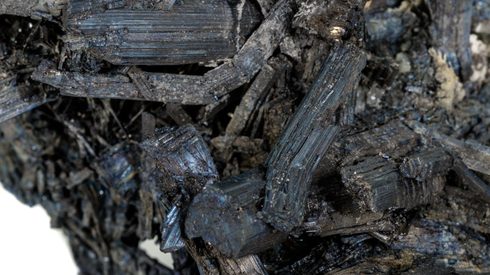Talk on the Indonesian government relaxing its export ban on raw materials had surfaced in the market over the past year, though chatter on the issue had picked up further this quarter of the year.
“I don’t believe any final decision has been taken by the Indonesian government during these past months. There have been rumours in the market that Indonesia will relax or they won’t relax the ban, but I think all this time this issue is still being discussed by stakeholders,” a Shanghai-based metals analyst said.
The Indonesian government is drafting a regulation that could ease an export ban on nickel ore, bauxite and copper concentrates, Indonesia’s Jakarta Post had reported this week.
In October, Luhut Pandjaitan, Indonesia’s then acting mining minister, said Indonesia was finalising an overhaul of its mining rules that could give companies up to five more years to build smelters, and reopen exports of nickel ore banned since 2014.
But soon after, he was quoted in media reports saying that Indonesia would “almost definitely” keep in place a ban on nickel ore and bauxite exports.
For now, most market participants polled by Metal Bulletin believe that Indonesia is likely to ease its export ban on the raw materials, though this is likely to come with restrictions such as export quotas and taxes, and stricter environmental rules for miners.
“The consensus in the market now seems to be shifting towards the Indonesia permitting exports. It would probably not be strange if Indonesia exports again,” a Singapore-based metals analyst said.
Smelter investments – which the Indonesian government had hoped to encourage following its ban on raw material exports in 2014 – have not progressed as quickly as expected. And given prolonged depressed prices in the commodities market, some smelters are hoping that they could temporarily export ore to raise funds to continuing building smelters, the analyst said.
State-owned miner PT Aneka Tambang (Antam), for one, had said in September that it hopes to export nickel ore which it is unable to process domestically and hence generate funds for smelter development.
Philippine supply
Most agree that any relaxation in Indonesia’s export ban on nickel ore will put downward pressure on nickel prices though the decline could be offset by potential production disruptions in the Philippines.
The Philippine Department of Environment and Natural Resources (DENR) is reviewing environmental compliance certificates (ECC) granted by previous governments. The ECC of seven projects, including those for three nickel producers, have recently been cancelled, local media reported.
This follows an eight-week government environmental audit, which concluded in September this year.
The audit resulted in ten mines being halted and another 20 mines flagged for possible suspension – responses from the latter are being assessed by the DENR and results are expected around the second week of January.
“There are a lot of politics involved with what’s happening in the Philippines and there seems to be some exaggeration on the mine closures there. But on the whole, the Philippines will find competition for its nickel ore if Indonesia eases its ban,” a Singapore-based trader said.
Nickel prices could expect more volatility going forward when more news comes out of Indonesia and the Philippines, another Singapore-based trader said.
“People just need an excuse to trade. It doesn’t matter whether there is any actual impact on supply. Everybody is trading on headline news. We’ve already seen that happen before,” he said.
The London Metal Exchange three-month nickel price climbed above $10,000 per tonne in late June this year – a level not seen since November 2015 – due to nickel ore supply concerns in the Philippines.
After easing since August, it returned to above this level on October 25 and hit $10,950 per tonne in intraday trading on Wednesday December 21, up $25 from the previous day’s close.





